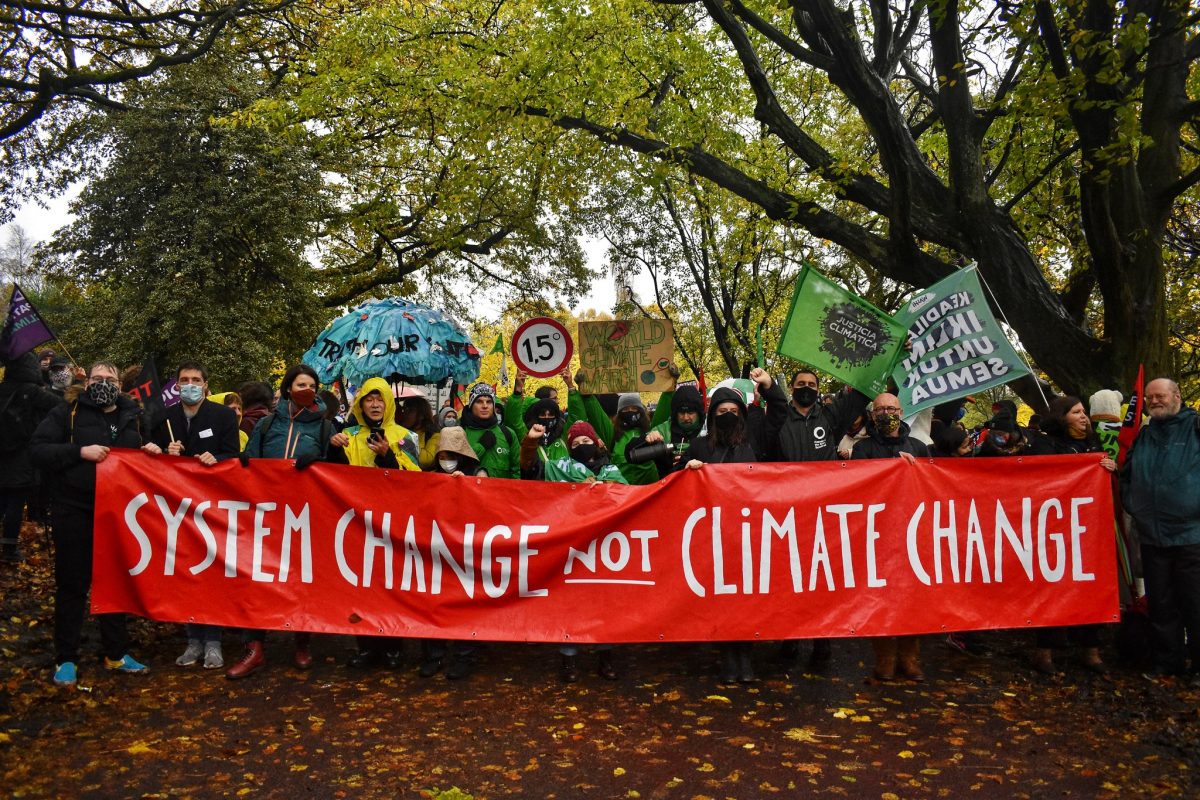
Transport statistics show political capitulation to cars
Official statistics released today demonstrate how cars continue to dominate our transport system, while bus usage continues to decline sharply. Campaigners say that the figures, released just ahead of the Scottish Parliament Budget debate, shows the need for a radical change in transport funding priorities.
Friends of the Earth Scotland criticised the Scottish Government and Councils for their failure to seriously address the dominance of cars in our transport system. The devastating impact of cars is being felt in health impacts from air pollution, climate-wrecking greenhouse gases and congestion of vehicles.
Key statistics:
- Total greenhouse gas emissions from transport increased 3.35%, with growth coming from aviation, HGVs and cars.
- Road transport accounts for 69% of transport greenhouse gas emissions. Transport (including international shipping and aviation) accounts for 37% of Scotland’s total climate emissions.
- The total number of vehicles licensed in Scotland was 2.99 million in 2018, 1% higher than 2017 and 12% higher than in 2008.
- Around 380 million passenger journeys were made by bus in Scotland in 2018-19. This is a decrease of 2.2% on 2017-18. There has been a 10% fall in bus passenger journeys in the last 5 years (421mill down to 388mill).
- 68% of employed adults travelled to work by car or van. Walking (from 12% to 11.8%) and cycling (from 3% to 2.8%) fell as an overall share of commuting-to-work modes.
- 49% of households living in the most deprived areas do not have access to a car, highlighting the need for reliable, affordable public transport to address inequality.
========
Friends of the Earth Scotland revealed last month that 7 locations in Scotland are breaking the law due to illegally high levels of dangerous air pollution – deadlines due to have been met almost a decade ago.
Friends of the Earth Scotland Air Pollution Campaigner Gavin Thomson commented,
“These statistics paint a grim picture of a transport system in Scotland that is failing to respond to the climate emergency. Years of splurging billions on newer and bigger roads has come at a huge cost to our climate, public health and the rest of our transport system. The political capitulation to cars must stop in this year’s Budget.
“The continuing freefall of bus passenger numbers should be keeping politicians awake at night. Buses must be treated as the vital public service they are. Increasing access to free bus travel, and helping councils who want to run their own bus services can boost public health, connectivity and tackle climate change.
“As budget negotiations continue, opposition parties must prioritise investments that will bring down emissions and press the Government to halt reckless motorway spending, diverting the cash saved into improving our bus network. The numbers of people walking and cycling to work has remained stagnant, further making the case for significantly increased support and investment from Government and local authorities.”
“The only positive note is the slowing increase in car purchases. Car ownership is still increasing, but not as sharply as in previous years. We need to move away from default car use, and this begins with public spending. Improve public transport, make bus travel free to as many groups as possible, and build a joined-up cycling network for Scotland’s towns and cities, so that people can cycle where they need to go in safety and comfort”
Notes to Editors:
1. The 2019 Scotland Transport Statistics published today (26/2/20) can be viewed https://www.transport.gov.scot/publication/scottish-transport-statistics-no-38-2019-edition-pdf-only/
2. The Scottish Parliament Information Centre’s provided a summary analysis of the proposed Scottish Budget’s transport commitments https://spice-spotlight.scot/2020/02/11/transport-a-climate-emergency-budget/
3. Friends of the Earth Scotland urged the Government to divert funding from new motorway projects to sustainable transport in the budget. https://foe.scot/press-release/reckless-road-spending-plans-must-be-redirected-in-climate-emergency/
4. The 2017 Greenhouse Gas Emissions statistics show road transport is the biggest emitter in Scotland (p.19). https://www.gov.scot/binaries/content/documents/govscot/publications/statistics/2019/06/scottish-greenhouse-gas-emissions-2017/documents/scottish-greenhouse-gas-emissions-2017/scottish-greenhouse-gas-emissions-2017/govscot%3Adocument/scottish-greenhouse-gas-emissions-2017.pdf
5. Friends of the Earth Scotland recently published data showing 7 locations in Scotland are still breaching legal air quality legal limits, ten years after they should have been met. https://foe.scot/press-release/revealed-scotlands-most-polluted-streets-2019/
6. It is estimated that air pollution costs the Scottish economy over £1.1 billion each year in days lost at work and costs to the NHS. (Extrapolated from a Defra assessment that air pollution costs the UK economy as a whole £16 bn per year, based on 29,000 UK- wide deaths from air pollution: Defra, “Impact pathway guidance for valuing changes in air quality” (May 2013))
https://www.gov.uk/government/publications/air-quality-impact-pathway-guidance
7. Friends of the Earth Scotland is:
* Scotland’s leading environmental campaigning organisation
* An independent Scottish charity with a network of thousands of supporters and active local groups across Scotland
* Part of the largest grassroots environmental network in the world, uniting over 2 million supporters, 75 national member groups, and 5,000 local activist groups.
